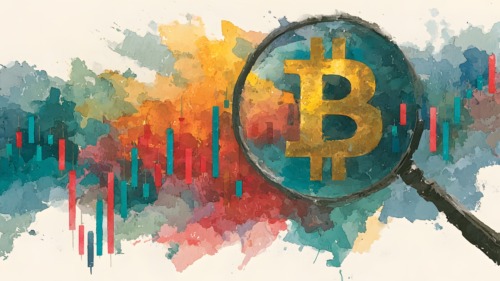Crypto VCs Cast Doubt as AI-Crypto Fusion Faces Scepticism at Emergence Conference

- Rob Hadick from Dragonfly and David Pakman from CoinFund expressed skepticism about crypto projects competing with major AI players like OpenAI, Meta, and Microsoft.
- The panelists agreed decentralised AI systems lack practicality and scalability in the near term, with limited potential to challenge centralised giants during this market cycle.
Speaking at The Block’s Emergence conference in Prague, Rob Hadick, general partner at the crypto-focused VC Dragonfly, is not convinced that crypto projects can outpower major AI players such as OpenAI, Meta, and Microsoft, let alone achieve synergy between the two fields.
Hadick essentially said that what RWAs, DePIN, GameFi, AI crypto, and other niches essentially do is try to rebuild the wheel to only end up sabotaging themselves.
Crypto has a problem of taking things that exist really, really well off-chain, and making them worse, and putting them on-chain, and selling them to people who are already on-chain. We see this across all asset classes and all narratives…a lot of what is happening in this AI/crypto crossover is basically that.
 Rob Hadick, general partner at the crypto-focused VC Dragonfly
Rob Hadick, general partner at the crypto-focused VC Dragonfly Related: US Bitcoin ETF Holdings Overtake Satoshi’s Stash as World’s Biggest at 1.1M
Meanwhile, CoinFund managing director David Pakman said AI’s main contribution to crypto is enhancing software development and overall coding efficiency. Pakman explained that AI has significant potential in infrastructure, security, and decentralised applications, calling it a “massive software [and] technical revolution”.
Dream On!
An interesting topic that arose during the conference was the rise of AI agents —autonomous programs designed to execute complex tasks.
We’re talking about a relatively new market with over US$8B (AU$12.5B) capitalisation. If you look at this category on CoinGecko, you’ll find AI projects like Artificial Superintelligence Alliance, a combination of three other AI projects (Ocean Protocol, SingularityNET, and Fetch.ai). Gee, talk about UX and simplicity.
And what does the Artificial Superintelligence Alliance or other crypto AI projects do? I don’t know. Seriously. But if you look deeper into the rabbit hole, you’ll find a subcategory of AI agents derived from Truth of Terminals. This market is led by coins like Fartcoin (FART), Turbo (TURBO), and Goatseus Maximus (GOAT).
Needless to say, review these projects at your own risk.
Anyway, Hadick doubted that any of these agent-based, sophisticated, and abstract AI crypto projects will have any long-term viability, comparing them to crypto gaming in 2021 (ouch!).
I think almost everyone will lose a lot of money.
 Rob Hadick, general partner at the crypto-focused VC Dragonfly
Rob Hadick, general partner at the crypto-focused VC Dragonfly He did say that AI agents could work in crypto projects, in facilitating payments:
If we have an agent-based future…crypto is an ideal substrate for agent-to-agent and human-to-agent payments.
 Rob Hadick, general partner at the crypto-focused VC Dragonfly
Rob Hadick, general partner at the crypto-focused VC Dragonfly Related: SEC Set to Reject Solana ETFs in Gensler’s Final Crypto Crackdown, Says Bloomberg Analyst
All said and done, both panelists agreed that decentralised AI systems are unlikely to challenge dominant centralised players —such as OpenAI, Microsoft, and Meta— during this market cycle.
Hadick said decentralised training and machine learning models are not practical or scalable in the near term.






